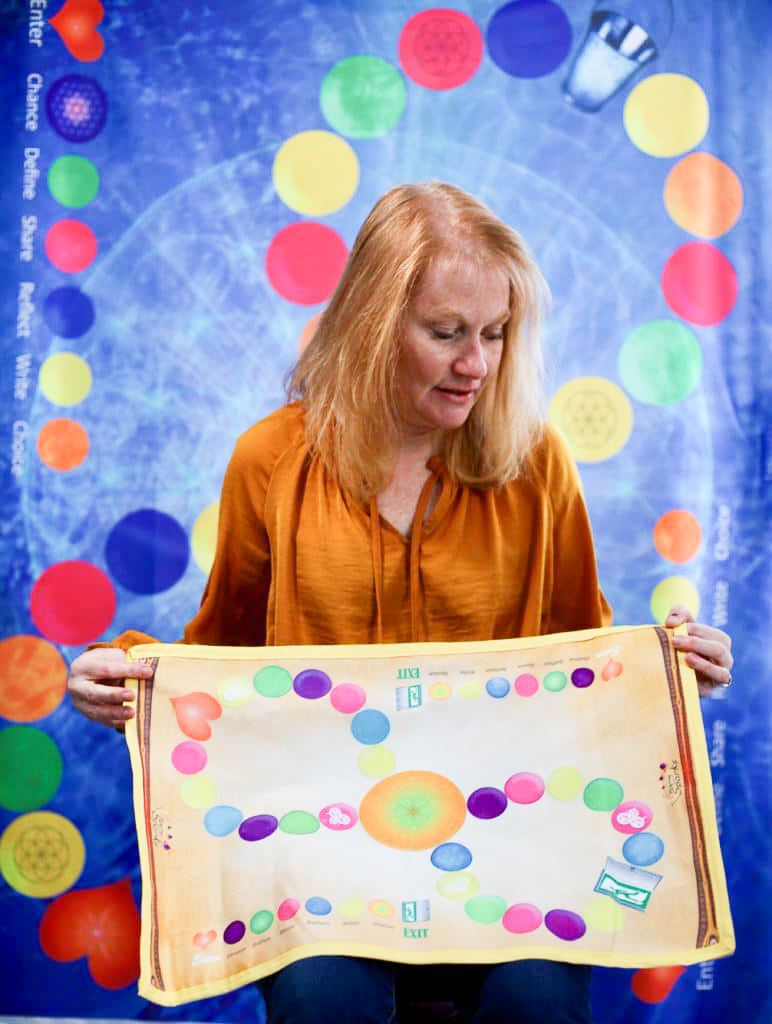When it comes to major transitions in life, especially those where the medical or legal industry is involved, it is good to have someone around with experience and knowledge. However, there are increasing numbers of experts offering alternative options to traditional medical care. Doulas are among those offering alternative and holistic healthcare options as people work through important points in their lives.
In this article we will investigate birth and death doulas to understand how they help clients deal with big moments in life with knowledge, experience and empathy.
Sasha Simine—birth doula
Sasha Simine is a birth and postpartum doula working in Kitchener, Guelph, Waterloo and Cambridge. Simine helps clients prepare for delivery by helping them plan for their delivery, providing education, and providing emotional and physical support. She does not perform any medical tasks.
Simine was working towards a career in embryonic research as she earned her BA Biology from Mount Holyoke College. She realized that path would not include the person-to-person interactions that she sought.
“I had been gearing up to do scientific research studying embryonic development which is incredibly fascinating to me but also very lonely. Working in the lab just wasn’t bringing me joy so I was looking for a way to sort of take my interests but apply them to a more hands on working directly with people profession,” Simine said.
“[I was] really shocked by how many people were reporting dissatisfaction and trauma in their birth experiences and recognized that there’s a real missing piece to the way we treat birth in society. It’s not given the time and attention and care that it needs in most cases and that really spurred me to think this could be a place where I could really make an impact in people’s lives,” she said.
There are many reasons that expecting parents might reach out to a doula. Some first-time parents who want someone with experience in labor and postpartum to guide them through the process or those with past traumatic birth experiences who want extra support.
Simine said she works with her clients as a confidante and that she values having a close connection with them.
Simine uses her scientific education to do her own research and help her clients understand medical advice. She ensures her care and work is based in scientific knowledge.
Simine has trained with Revolutionary Doula Training, Doula Canada, The Wessleyen Abortion Doula Project and the Spinning Babie’s workshop. She is also a part of the RISE Ventures program through Innovation Guelph.
“I would also tell anyone who is considering being a doula to invest in their business education as well. Whether that’s a business course or joining a business program, ” Simine said. “Also make connections with the community. Doulas can’t work alone. It’s very important that we have backups in case something were to happen, we don’t want to leave our clients alone in their time of need.”
“I think that having that close connection is really important because without that then my clients don’t know I have their back. And most of the other professionals people will interact with in their experience can be pretty removed from them they might not know anything about them at all and there’s also a power dynamic there and so it’s really important to me that I’m on the same level as my clients.”
Simine said it is important for doulas to be outside the healthcare system so they can be the advocates their client needs.
For example, doctors, nurses and midwives are subject to the policies of their hospital. If they push back against those policies to advocate for a patient, they are at risk of potentially losing their job, whereas a doula is not.
“The hospital is set up to deal with acute medical emergencies and it’s set up to be efficient and it’s really good at doing that, but the problem is that birth isn’t an emergency and it’s also not efficient,” Simine said.
“People have been birthing for as long as humans have existed and it’s also just a process that takes time and when parents feel that they are on a clock…and so I do think that the way that our current healthcare system deals with birth is inadequate. It doesn’t effectively address the needs of these mothers and birth givers to have the calm and safe births that they deserve.”

Jennifer Davis—death doula
Jennifer Davis is a death doula and the founder of Exit Matters, an organization that aims to help people before, during and after the process of death. The definition of a death doula can be rather broad. Death doulas might provide public education about death, help with advanced care or funeral planning, help facilitate conversations about death with family members and loved ones, offer support during one’s death, or otherwise help a dying person and their loved ones through the process of their death.
Although Davis offers a wide range of death doula services, she specializes in conversation facilitation.
“My primary mission is to help people say a beautiful goodbye,” Davis said. “I created a number of resources, including a couple of board games, to start those conversations with family members or loved ones because it can be a really awkward hard place to even know what to include, how to start it and to even identify what your values are or the things that matter to you in order to share them with your loved ones.”
Prior to working as a death doula, Davis spent several years working as a hospice volunteer, where she experienced caring for people approaching the end of life. The Region conducted the The Advance Care Planning Project in YEAR, during which they consulted with doctors, long term care home workers, those in the funeral industry, along with accountants and financial planners and general members of the community to discuss how to start discussions about death. Davis was among the professionals consulted.
“I was just a scribe [for the project]. I was just writing down the answers, but over and over we were writing ‘we know we should have these conversations, but we don’t know how to start them’,” Davis said.
This experience inspired Davis to create a board game called Exit Matters that was designed to help facilitate conversations about death. The board game provides questions for you and a partner to discuss about what your values are concerning death. At the end of the game, your partner needs to report on your answers to the questions without looking at your list. This process is to help practice communication about one’s concerns and values regarding their death.
“If you are not able to speak for yourself, a medical professional is going to go to your power of attorney or substitute decision-maker. So, if your substitute decision-maker, if your representative does not know your wishes, and they’re coming to them and saying, ‘well, what would they want?,’ that’s where it can get really hard. Very, very hard” said Davis.
“And so the game is meant to not just help you in terms of understanding some of these pieces, but also to practice sharing them and hearing them reflected back to you and knowing whether or not you did a good job of clearly speaking them,” she said.
Davis also created the “Ick and Spark” storybook-journal to start contemplation and discussion about death. Davis turned the ideas of the ick and spark of life into fairies. Ick represents the parts of life from which people generally turn away—things that people think are broken. Spark, who normally flies through the air and rarely touches the ground, meets Ick and they have a conversation. “There’s a draw, I think, in our culture, to the newness and the new life and the fixing things and the exciting and how to problem solve and save our planet or whatever, and a kind of turning away from what I describe as the ‘ick’,” Davis said.
“They meet and have this quite profound conversation and realization of who they are to each other and how they need each other. And without honoring the place of death, there’s a huge missed opportunity.” she said.
Like birth doulas, death doulas can help clients navigate a healthcare system that may be confusing for them or unable to provide the emotional support they need.
“I believe there’s a huge place for family to be a part of the dying process, and, because the healthcare profession is about health care, not death care, the family can be on their own or feel like they’re on their own in it. And so, a death doula is someone who can be with you [and] guide you” Davis said.
There is also no accrediting body for death doulas and there are a variety of options when it comes to education. Conestoga College offers a program in thanatology, the study of death and losses, and Douglas College in BC offers courses in becoming an end-of-life doula. In addition, many individual courses are offered in various institutions. Davis also encourages those interested in working as a death doula to build business skills.
Conclusion
Both birth and death doulas can be a valuable addition to the care one receives from the rest of the healthcare system and can help ease people through emotional times. It is important that people have autonomy and advocates when it comes to the care they receive.
For more information, visit https://www.sashasiminedoula.com/ and https://www.exitmatters.com/.




Leave a Reply